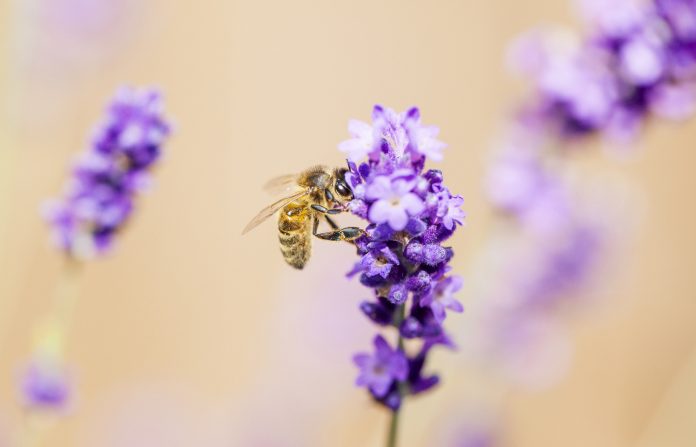Farmers are turning to technology-driven solutions as declining bee populations face challenges in pollinating crops
Based on a moshav, a collective farm in central Israel, Mr. Sade founded BloomX, a tech company. He says that the company has developed a method to mechanically pollinate crops, similar to the role of bees in the process.
Around the globe, three-quarters of crops cultivated for human consumption, primarily those bearing fruits or seeds, depend to some extent on pollinators. Among these vital pollinators, honeybees raised for farming and over 20,000 diverse wild bee species, including bumblebees, play a crucial role.
The importance of insects for life on Earth
Insects play a vital role in supporting life on Earth. In the United States, bees alone contribute to 75% of the pollination needed for fruits, nuts, and vegetables. Similarly, in Europe, wasps and butterflies account for the remaining 25%.
Unfortunately, bee populations face significant challenges. Factors like climate change, loss of their natural habitats, and pesticide use put pressure on them. Additionally, European honeybees are particularly affected by a harmful parasite known as varroa destructor.
BloomX focuses its technology on two crops: blueberries and avocados. This technology ensures pollination even when there’s a shortage of local bees.
Their primary product, “Robee,” resembles a large push-along lawnmower. It features two mechanical arms extending on either side. These arms vibrate, and when moved over blueberry plants, they trigger pollen release. The vibration level is carefully designed to mimic the bumble bee’s wing action, as they are the most effective pollinators for blueberries, agitating the flowers during pollination.
BloomX also offers another product called “Crossbee,” a handheld device designed for gathering and distributing sticky pollen grains among avocado trees. This equipment is used in various regions, including South America, South Africa, Spain, the United States, and Israel. According to BloomX, it can increase fruit yields by up to 30%.
These products are operated through an AI-driven software linked to a mobile phone app. Additionally, each device is equipped with GPS technology, allowing farm workers to track the areas within a field that have been treated.
Furthermore, sensors can be deployed to ensure pollination occurs on the most favourable days.
Challenges faced by Honeybees in almond pollination
California dominates the almond industry, producing 80% of the world’s almonds and generating a yearly industry value of around $10.4 billion. To pollinate the vast 1.3 million acres of almond trees in the state, honeybees are transported from all over the US during almond flowering season.
Some reports suggest that as much as 70% of commercial honeybee populations in the US are brought to California for this purpose.
This migration of honeybees can create shortages of pollinators for other crops in different parts of the country. Artificial pollination may offer a solution to address this pollination gap.
“Travel can stress honey bees and weaken colonies, but the business of pollinating almonds is hugely important for beekeeper income and keeping their operations economically viable.”
“However, the impact on other crops is that honey bees may be in short supply if other crops have bloomed at a time that coincides with the California almond industry.” Lisa Wasko DeVetter, an associate professor of horticulture at Washington State University, says.
The almond fields face challenges, including a high honeybee mortality rate attributed to pesticide exposure and the stress of long-distance transport. Moreover, this intense reliance on honeybees can harm native wild bees, as they have to compete for food and face new diseases.
Artificial pollination technology
Some suggest incorporating artificial pollination into almond cultivation. Eylam Ran, head of the Israeli tech firm Edete, believes that relying solely on bees may place them in unsuitable environments.
Edete’s technology focuses on pollen preservation, capable of storing it for several years without deterioration. They’ve developed machinery for collecting and applying this pollen efficiently.
Edete’s technology has primarily been implemented in California’s pistachio fields, but they are now expanding their efforts to include almond cultivation.











